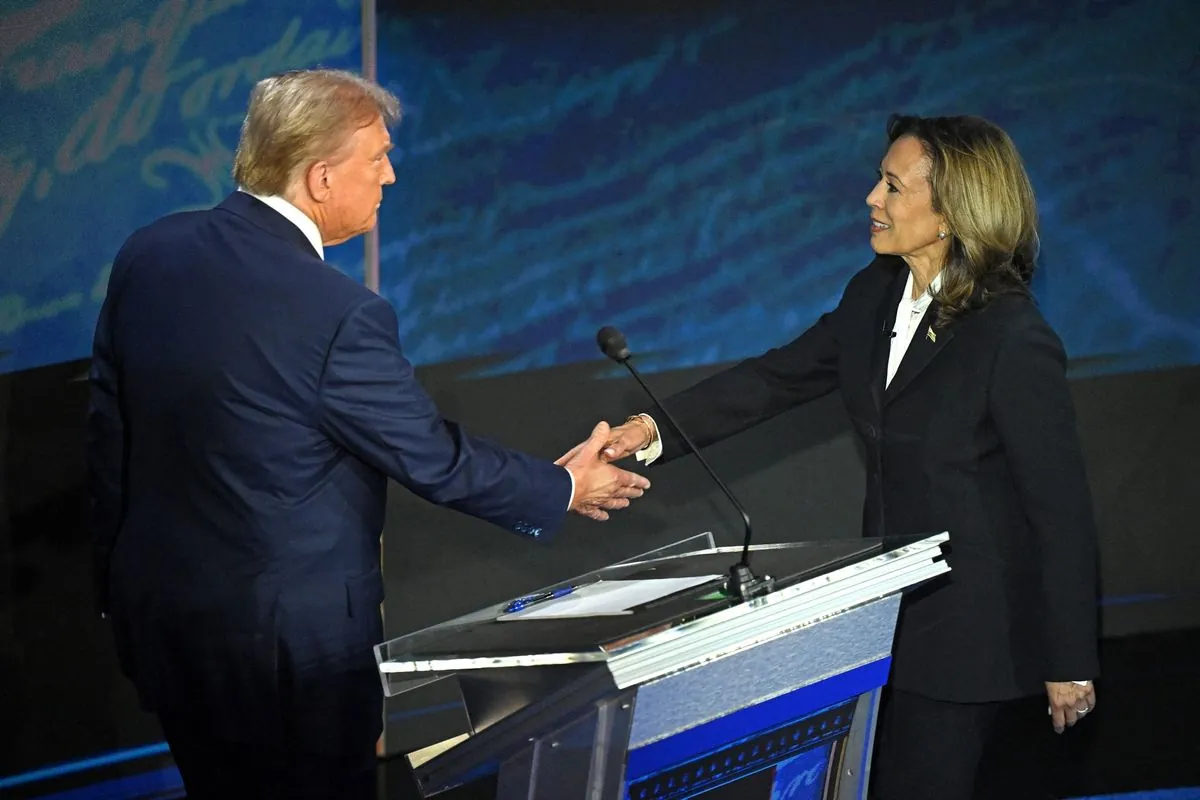In a recent debate, Vice President Kamala Harris made an unexpected revelation about her personal firearm ownership, challenging accusations from her political opponent. This disclosure came as a response to claims that she intended to confiscate firearms from citizens.
Harris stated, "Tim Walz and I are both gun owners. We're not taking anybody's guns away." This declaration aligns with her previous statements from 5 years ago during her presidential campaign, where she mentioned owning a firearm for personal safety due to her background as a career prosecutor.
The debate highlighted the ongoing tension surrounding gun control in the United States. The US has the highest rate of civilian gun ownership globally, making this a particularly sensitive issue. The Second Amendment to the US Constitution, which protects the right to bear arms, has been a cornerstone of this debate for decades.
Donald Trump, Harris's opponent, accused her of having plans to "defund the police" and "confiscate everybody's gun." He also claimed she would not allow fracking in Pennsylvania or elsewhere. Harris firmly rebutted these allegations, urging an end to "continuous lying about this stuff."
The exchange underscores the stark contrast between Republican and Democratic views on gun control. While Republicans often portray Democrats as a threat to Second Amendment rights, Democrats typically describe their proposals as common-sense measures to enhance public safety.
Harris has advocated for specific gun control measures, including:
- Implementing universal background checks
- Expanding "red flag" laws
- Banning so-called assault weapons
- Prohibiting high-capacity magazines
These proposals reflect ongoing efforts to address gun violence while respecting constitutional rights. Universal background checks, first introduced with the Brady Handgun Violence Prevention Act in 1993, would extend to private gun sales. "Red flag" laws, also known as Extreme Risk Protection Orders, aim to temporarily remove firearms from individuals deemed dangerous or unstable.
The terms "assault weapons" and "high-capacity magazines" remain contentious, lacking standard definitions. Historically, the Federal Assault Weapons Ban was in effect from 1994 to 2004, and some states have since implemented their own bans.
As the gun control debate continues, it's worth noting that gun ownership rates vary significantly across US states, and the gun industry contributes substantially to the national economy. The Supreme Court has ruled that the Second Amendment protects an individual's right to possess firearms, adding another layer to this complex issue.
"I am a gun owner, and I own a gun for probably the reason a lot of people do — for personal safety."
This ongoing discussion reflects the challenge of balancing public safety concerns with constitutional rights, a debate that often intensifies following mass shooting incidents. As political figures like Harris and Walz navigate this sensitive topic, the search for common ground on gun control measures remains a critical aspect of American political discourse.
